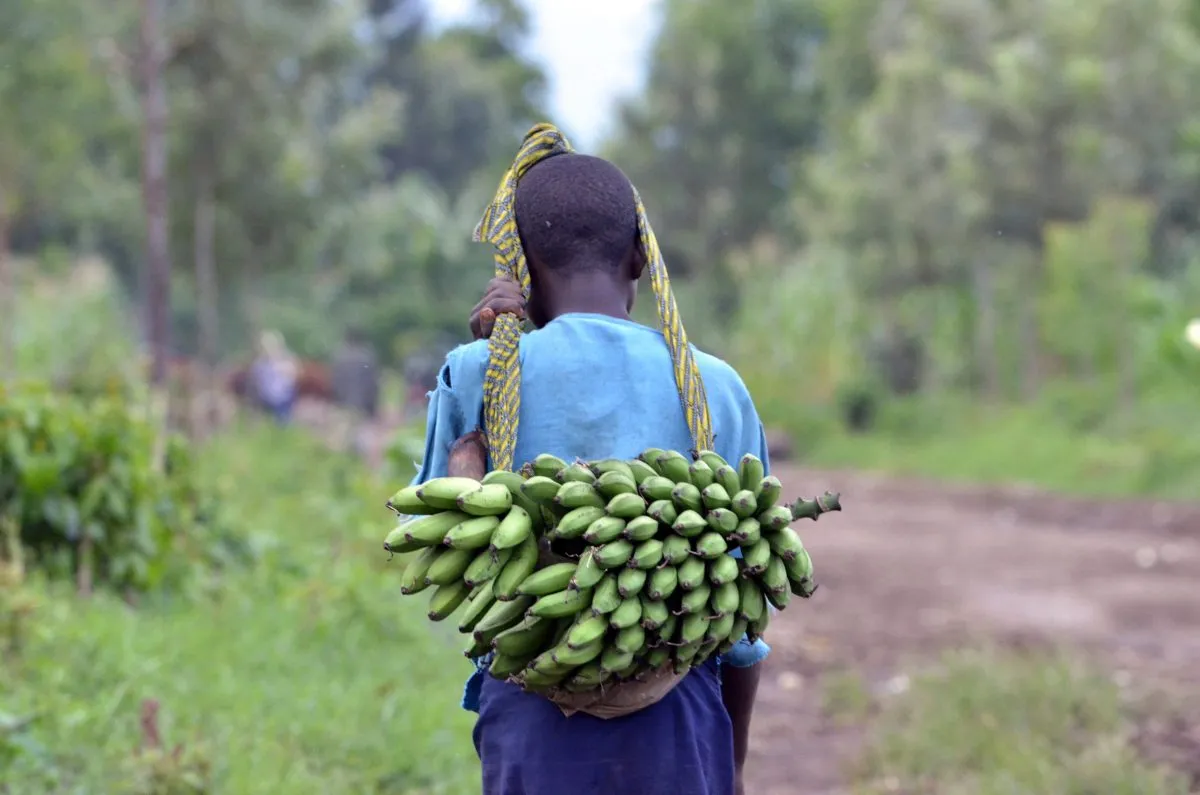This article is part of a series produced in collaboration with the African Development Bank in light of its sixtieth anniversary. Please visit our dedicated portal to read about the Bank's history and its activities on the continent.
With the support of the African Development Bank, Tanzania has achieved 128% food security, producing surplus food that it is exporting to neighbouring countries.
President Samia Suluhu Hassan made the revelation during a high-level session at the 2024 World Food Prize Norman E. Borlaug International Dialogue in Iowa. The session, titled “Bold Measures to Feed Africa,” was moderated by Dr. Akinwumi Adesina, President of the African Development Bank Group, and featured Sierra Leone’s President Julius Maada Bio.
The country’s success is linked to its participation in the Bank’s 2023 Dakar 2 Food Summit, which mobilised over $72bn in commitments to agricultural transformation across Africa. Following the summit, the country signed a compact that emphasised boosting productivity and creating support structures for farmers.
“We realised that not investing in agriculture is much more costly than investing in the sector,” she said.
According to Hassan, Tanzania’s is now shifting to focus to improving quality, accessibility, affordability, and reducing post-harvest losses.
Tanzania has also achieved a significant milestone in cashew nut processing, becoming a processor and net exporter – a departure from the situation in most African nations, where most cashews are exported for processing in Asia. In addition, nearly 100% of Tanzania’s 12,300 villages are electrified, a remarkable accomplishment in rural development.
A commitment to youth and women
Adesina praised Hassan’s leadership and Tanzania’s political will, attributing the country’s success to its commitment to agricultural development and strong institutional support for farmers. He noted that Tanzania underscores the growing readiness of African nations to make large-scale investments in agriculture and food production.
The African Development Bank’s investment in Tanzania extends food production support to youth and women. The “Creating Jobs for Youth and Women” programme, supported by the Bank, targets the country’s 65% youth population by providing training in farming, agriculture, livestock, and crop management. As part of the initiative, each youth participant is given 10 acres of land, along with the necessary training and support. To date, 11,000 young people have benefited, with this year’s harvest already underway. President Hassan said she was grateful for the support that the Bank had extended to her country.
The session also showcased Sierra Leone’s progress under President Julius Maada Bio, who explained how the Feed Salone program has reduced rice imports by 20 million tonnes and spurred agricultural productivity, enabling the country to meet domestic needs and begin exporting. President Bio described agriculture as the foundation of development and emphasised Sierra Leone’s ambitions to attract investors to further strengthen its agricultural sector.
Bank helps to alter perceptions
Dr. Adesina used the session to highlight the African Development Bank’s efforts to reshape global perceptions of Africa and attract investment in critical sectors like agriculture. Speaking about Africa’s vast potential, he reminded attendees that the continent holds 65% of the world’s remaining arable land and has the technological capacity to become a global food basket. “This is why we bring African leaders here so you can hear from them directly,” Adesina said, emphasising the Bank’s commitment to creating platforms that amplify African voices and showcase their achievements.
The 2024 Norman E. Borlaug Dialogue, with the theme “Seeds of Opportunity, Bridging Generations and Cultivating Diplomacy,” brought together global experts to discuss innovative solutions to hunger.
Dr. Adesina, reflecting on his personal connection to Norman E. Borlaug, recalled the advice the late agricultural scientist gave him before his death: “Keep on scoring goals for Africa. If you are not investing in Africa, what are you doing?”

 Sign in with Google
Sign in with Google 



